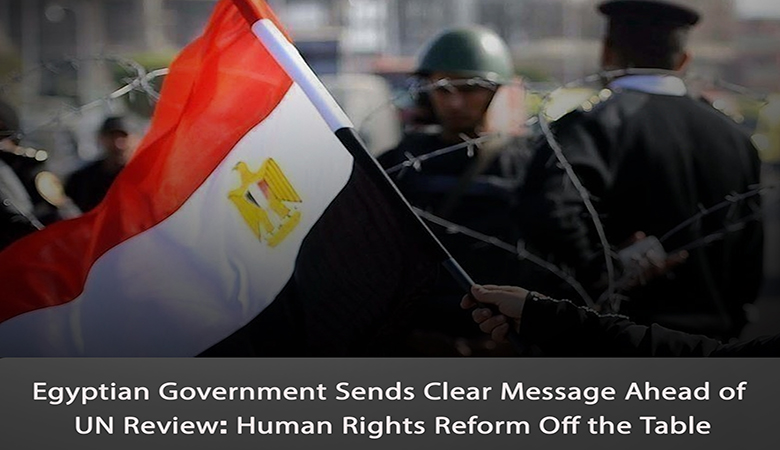For well over a decade, our organizations have regularly analyzed and documented developments concerning Egypt’s human rights crisis, most recently through our joint submission to the United Nations ahead of the Egyptian government’s upcoming UN Universal Periodic Review on 28 January 2025. Since the last review in 2019, we have highlighted how government initiatives like the National Human Rights Strategy and the National Dialogue are no more than whitewashing endeavors. We have outlined why the presidential elections in 2023 could neither be free nor fair, and indeed the elections were marred by flagrant violations. Those who dared to mount a serious challenge to President Abdelfattah al-Sisi in the elections were eventually jailed. Even members of the opposition who attempted to organize for the parliamentary elections in 2020 had been jailed for years under trumped-up terrorism charges. And while the Egyptian government repeatedly claims strides have been made in releasing political prisoners, it has arrested nearly three times as many people as they released over the last few years. Egypt is now home to the largest population of political prisoners in the region, after the collapse of the Assad regime in Syria. This is a reality that remains unchanged.
But for those who still maintain illusions about the human rights crisis in Egypt, the Egyptian authorities have given every possible signal over the past few months that human rights reform is off the table. In December 2024, the Egyptian parliament has moved forward with adopting a draft of a new Code of Criminal Procedures, one that legalizes many of the exceptional, and even some extralegal, measures that have been in place since 2013. The new code will be added to an arsenal of existing draconian legislation, which the Egyptian government has further strengthened over the past years despite criticism by civil society and UN experts. Using this arsenal, Egyptian authorities keep tens of thousands of peaceful dissidents and apolitical citizens behind bars, sometimes for no more than a social media post. Less than two weeks before Egypt’s review, the authorities arrested Nada Moughith, who’s been advocating for the release of her husband Ashraf Omar, a cartoonist in detention since July 2024. Though she was released on bail shortly afterwards, Ahmed Serag, a journalist who had interviewed her, remains detained.
Some of those behind bars, like human rights defender Ibrahim Metwally who has been forcibly disappeared and then held in pretrial detention since 2017, have never been convicted by a court. Others remain detained despite serving their sentences, such as Alaa Abdelfattah, who spent most of the previous decade in prison and whose last five year sentence expired in September 2024. His 68-year-old mother Laila Soueif has been on a hunger strike for more than 115 days, to no avail. Others like Hoda Abdelmoniem have finished their sentences only to find out they’ve been added to new identical cases in order to keep them for more years behind bars. Abdelmoniem Aboulfotouh, the 73-year-old head of a political party who spent the last seven years in solitary confinement serving a 15-year sentence that expires in 2033, similarly found himself facing a new fabricated case by the authorities in late December 2024, just to send a message that he will never leave prison alive. Hisham Kassem, a member of the opposition who served a six-month sentence for trumped up slander charges and was released in February 2024, has recently learned that he is being tried for essentially the same case again.
Not only are these cases emblematic of tens of thousands of others, but they are also ones that have been repeatedly raised by UN experts and the High Commissioner for Human Rights.
These tens of thousands of prisoners continue to face inhumane conditions, leading to frequent strikes over the past years, including suicide attempts in some cases. The most recent strike took place in early January 2025, where detainees at the 10th of Ramadan Prison began a hunger strike to protest their conditions. The authorities responded by denying the existence of the strike and summoning Hossam Bahgat, the director of EIPR, the human rights organization that published on the strike, to investigation on January 19. He was released on bail after being charged with involvement with and financing a terrorist group and publishing false news.
Not only do the Egyptian authorities remain profoundly unwilling to address or even acknowledge the human rights crisis, but they are also entirely unencumbered by the prospects of international criticism, including during the UPR. Indeed, amid these unfolding developments, some states and international actors continue to unconditionally support the Egyptian government, and could in fact be viewed as complicit in whitewashing the government’s human rights record. The upcoming UPR for Egypt offers a decisive opportunity to communicate to the Egyptian government that its human rights record matters, and that its unapologetic trampling of rights and freedoms comes at a cost. Otherwise, the UPR risks being reduced to a platform for whitewashing the human rights crisis in Egypt.
Signatories:
Cairo Institute for Human Rights Studies
Ankh Association
Committee for Justice
Egyptian Commission for Rights and Freedoms
Egyptian Front for Human Rights
Egyptian Human Rights Forum
EgyptWide for Human Rights
Foundation for the Support of Law and Democracy
Nadim Center
Refugees Platform in Egypt
Sinai Foundation for Human Rights

